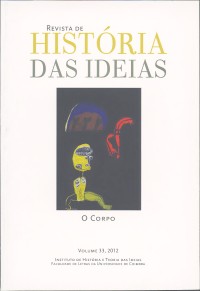Please use this identifier to cite or link to this item:
https://hdl.handle.net/10316.2/41373| DC Field | Value | Language |
|---|---|---|
| dc.contributor.author | Garnel, Maria Rita Lino | - |
| dc.date.accessioned | 2017-04-22T22:35:44Z | |
| dc.date.accessioned | 2020-09-30T11:27:12Z | - |
| dc.date.available | 2017-04-22T22:35:44Z | |
| dc.date.available | 2020-09-30T11:27:12Z | - |
| dc.date.issued | 2012 | - |
| dc.identifier.issn | 0870-0958 | - |
| dc.identifier.issn | 2183-8925 (digital) | - |
| dc.identifier.uri | https://hdl.handle.net/10316.2/41373 | - |
| dc.description.abstract | Coimbra é um molde. Esta afirmação de Fernando Namora, colhida na sua Autobiografia servirá de guia para algumas reflexões sobre o corpo. Sabe-se que a frase foi escrita em 1987 e que ela pretendia explicar retrospectivamente um percurso de vida que colhia a sua coerência nas opções literárias, políticas e de cidadania, nascidas nas tertúlias, nas amizades e nas antipatias dos tempos de estudante. Mas o molde foi construído também pela formação médica feita na Faculdade de Medicina, licenciatura que terminou em 1942. E é através do olhar de quem assume plenamente o corpo como objecto, se não único, pelo menos, essencial, que se revela o médico apesar do escritor. Afinal, a medicina nunca teve outro tema. Seguindo algumas propostas de antropologia médica, quer-se perceber, a partir de textos de Namora, como é dado a conhecer o corpo na diversidade das suas manifestações: o corpo doente e o corpo saudável, o corpo construído social e politicamente, o corpo do rural e do citadino, o corpo do homem e o da mulher. | por |
| dc.description.abstract | In his Autobiography, published in 1987, the writer and physician Fernando Namora, remembered the importance of his student years in the University of Coimbra. He went so far as to state that "Coimbra was a mould". We are aware that he was primarily thinking about his literary and political choices built in the informal student discussions that cemented friendships and dislikes. But the medical studies, which he finished in 1942, were also crucial: the importance of bodies in his literary work reveals very clearly that the writer was also a physician. The body is after all the only subject of medicine. So, following the suggestions of medical anthropology, the aim of this essay is to examine the various bodies presented by Namora: the sick and the healthy, the social and the political body, the bodies of peasants and city inhabitants and the gendered body. | eng |
| dc.language.iso | por | - |
| dc.publisher | Imprensa da Universidade de Coimbra | - |
| dc.rights | open access | - |
| dc.title | Pensar o corpo (com textos de Fernando Namora) | por |
| dc.title.alternative | Rethinking the body (a reading of Fernando Namora) | por |
| dc.type | article | - |
| uc.publication.collection | Revista de História das Ideias vol. 33 | - |
| uc.publication.firstPage | 277 | - |
| uc.publication.lastPage | 295 | - |
| uc.publication.location | Coimbra | - |
| uc.publication.journalTitle | Revista de História das Ideias | - |
| uc.publication.volume | 33 | por |
| dc.identifier.doi | 10.14195/2183-8925_33_13 | - |
| uc.publication.orderno | 14 | - |
| uc.publication.area | Artes e Humanidades | - |
| uc.publication.manifest | https://dl.uc.pt/json/iiif/10316.2/41373/248697/manifest?manifest=/json/iiif/10316.2/41373/248697/manifest | - |
| uc.publication.thumbnail | https://dl.uc.pt/retrieve/11868886 | - |
| item.grantfulltext | open | - |
| item.fulltext | With Fulltext | - |
| Appears in Collections: | Revista de História das Ideias | |
Files in This Item:
| File | Description | Size | Format | |
|---|---|---|---|---|
| pensar_o_corpo.pdf | 288.73 kB | Adobe PDF |  |
Items in DSpace are protected by copyright, with all rights reserved, unless otherwise indicated.
